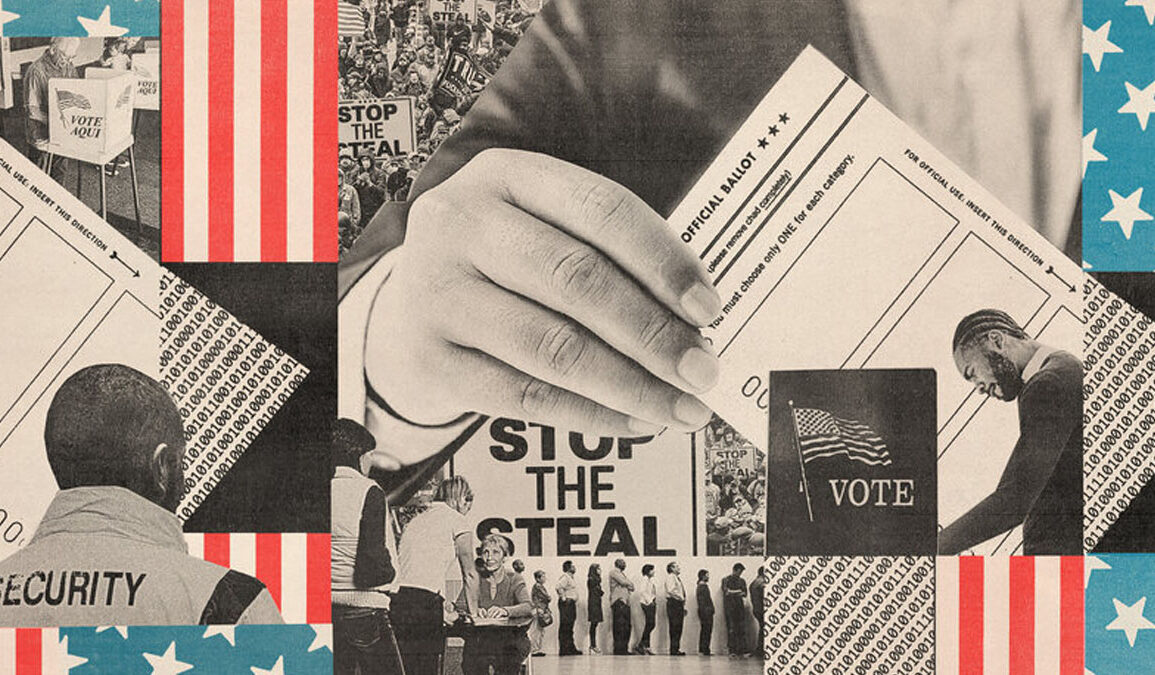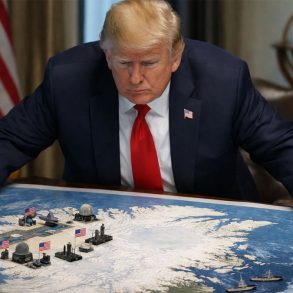Several groups and Democratic leaders filed lawsuits against President Donald Trump’s executive order that sought to require documentary proof of citizenship for voter registration. Organizations such as the League of United Latin American Citizens, along with voter registration groups represented by the American Civil Liberties Union, Brennan Center for Justice, LatinoJustice PRLDEF, and Asian Americans Advancing Justice, led the challenge. Democrats, including Senate Minority Leader Chuck Schumer of New York, also joined the effort. The lawsuits were consolidated before U.S. District Judge Colleen Kollar-Kotelly in Washington, D.C.
Marc Elias, an attorney representing some of the plaintiffs, posted on social media platform BlueSky, calling the judge’s ruling a “big victory” for voting rights advocates across the country.
Background of Trump’s Order
On March 25, 2025, President Trump issued an executive order instructing the independent Election Assistance Commission, or EAC, to amend the national mail voter registration form. The order demanded that applicants be required to show a document proving U.S. citizenship before being allowed to register to vote. Trump’s order also directed federal agencies to verify citizenship before distributing voter registration forms through public assistance programs. Additionally, the executive order threatened to withhold federal funds from states that counted mail-in ballots received after Election Day, even if they were postmarked by that day.
Supporters of the executive order said it was a necessary step to protect election integrity and prevent illegal voting. In a statement to The Epoch Times, White House spokesman Harrison Fields said, “President Trump will keep fighting for election integrity, despite Democrat objections that reveal their disdain for commonsense safeguards like verifying citizenship. Free and fair elections are the bedrock of our Constitutional Republic, and we are confident in securing an ultimate victory in the courtroom.”
The Judge’s Ruling
On April 24, 2025, Judge Colleen Kollar-Kotelly issued a 120-page opinion blocking key parts of the order. She ruled that the Constitution assigns the responsibility for regulating federal elections to Congress and the states, not to the President. She wrote, “Our Constitution entrusts Congress and the States—not the President—with the authority to regulate federal elections,” emphasizing that Congress is currently debating related legislation known as the SAVE Act.
The judge pointed out that Trump’s order tried to impose requirements that Congress had not yet passed. She said, “No statutory delegation of authority to the Executive Branch permits the President to short-circuit Congress’s deliberative process by executive order.” The judge also highlighted that the EAC had already taken steps to prepare for implementing the order, including sending letters to states asking how they would propose to meet the new citizenship proof requirements.
The court found that the plaintiffs were “substantially likely to prevail” in their claim that Trump’s executive order violated the Constitution. However, the judge did not block every part of the order. She refused to halt provisions involving penalties on states counting late-arriving mail ballots, ruling that those challenges were either premature or needed to be brought by the states themselves.
What Supporters Are Saying
Trump’s supporters continue to defend the executive order as a necessary measure to ensure that only American citizens are voting. Harrison Fields reinforced this message by saying the White House remains committed to “commonsense safeguards like verifying citizenship.” Trump allies argue that verifying citizenship is a basic step toward protecting the nation’s elections from fraud and foreign interference.
They also say that requiring proof of citizenship is not an unreasonable burden. Supporters claim it is a simple way to restore trust in the election system, which many Republicans believe has been undermined by instances of improper voter registration, even though studies show cases of noncitizen voting are extremely rare.
What Critics Are Saying
Opponents of Trump’s directive celebrated the judge’s decision as a major win for voting rights. Organizations challenging the order released a joint statement saying, “The court’s decision today provides crucial protections for eligible voters, and the organizations that help them register to vote, while the fight continues against this illegal executive order.”
Critics argue that requiring documentary proof of citizenship, such as a passport, creates unnecessary obstacles for millions of eligible voters. They noted that less than half of American citizens possess a passport and that other documents, like birth certificates, were not clearly accepted under Trump’s order. A complaint filed by the plaintiffs stated, “The Executive Order seeks to impose burdensome proof of citizenship requirements based on documents millions of Americans do not possess.”
The current national mail voter registration form already requires applicants to attest, under penalty of perjury, that they are U.S. citizens. Noncitizens who lie on the form face criminal penalties, including deportation and prison time. Critics emphasized that there is no widespread evidence of noncitizen voting that would justify imposing more barriers on voter registration.
Jude Joffe-Block, reporting for NPR, noted that although Trump pushed narratives about noncitizen voting during the 2024 election, “state audits have found instances of noncitizens voting to be exceedingly rare.
Other parts of Trump’s executive order remain under litigation. Challenges from Democratic state attorneys general, including separate lawsuits filed by Washington and Oregon, are moving through different federal courts. The Department of Justice asked for the cases to be consolidated in Washington, D.C., where Judge Kollar-Kotelly is handling the main proceedings.
Meanwhile, election officials across the country are waiting for final decisions before making changes. Tim Tsujii, the director of elections in Forsyth County, North Carolina, summed up the situation by saying, “My job is to wait for guidance and instructions on how to go about implementing any regulations that come down. I am in a holding pattern right now.”
Judge Kollar-Kotelly’s decision ensures that, for now, voter registration will continue under the existing system. Any applicant registering by mail will still be able to attest their citizenship without being forced to produce additional documents. However, the broader legal battle over voting rules and presidential authority is far from over.








